Chateau de la Chaize Brouilly 2022
-
James
Suckling -
Jasper
Morris -
Wine
Enthusiast



Product Details
Your Rating
Somm Note
Winemaker Notes
A blend of select vineyard sites owned by Chaize, situated around the historic Château, this flagship cuvée stands as the epitome of the estate's excellence. Each parcel undergoes individual vinification, ensuring meticulous attention to detail and preserving its unique qualities. Representing the essence of the Brouilly Cru du Beaujolais, renowned for its deep granite soil ideal for Gamay grapes, this wine captivates with a harmonious blend of complexity and fruity aromas, embodying the essence of its terroir with unparalleled finesse.
Professional Ratings
-
James Suckling
A fragrant and delightful Brouilly that's juicy and subtle. Elegant, medium bodied palate. Lively acidity and soft tannins for the 2022 vintage. The aromas and the balance are fantastic.
-
Jasper Morris
Subtitled Les Amants Magnifiques in the French market, after a work by Molière (music by J-B Lully). Mostly from the lieu-dit Chavannes, on blue volcanic soil on the west side of the mountain. A richer fruit concentration and a completely different profile with the darker fruit and more austere character of the slate. Higher acidity just short of volatile but gives one desire to drink more. 13.5% alcohol. Drink from 2025-2030. Tasted: April 2024.
-
Wine Enthusiast
Blackberry, black plum, and cassis aromas open on the nose along with hints of cigar box and cranberry skin. The palate is round with an adolescent acidity on the precipice of maturity. Hints of dried orange peel infuse the wine with added complexity. Taub Family Selections.
Other Vintages
2019-
Robert
Parker -
James
Suckling
-
Wine
Enthusiast
-
Wine
Enthusiast
-
Wine
Enthusiast
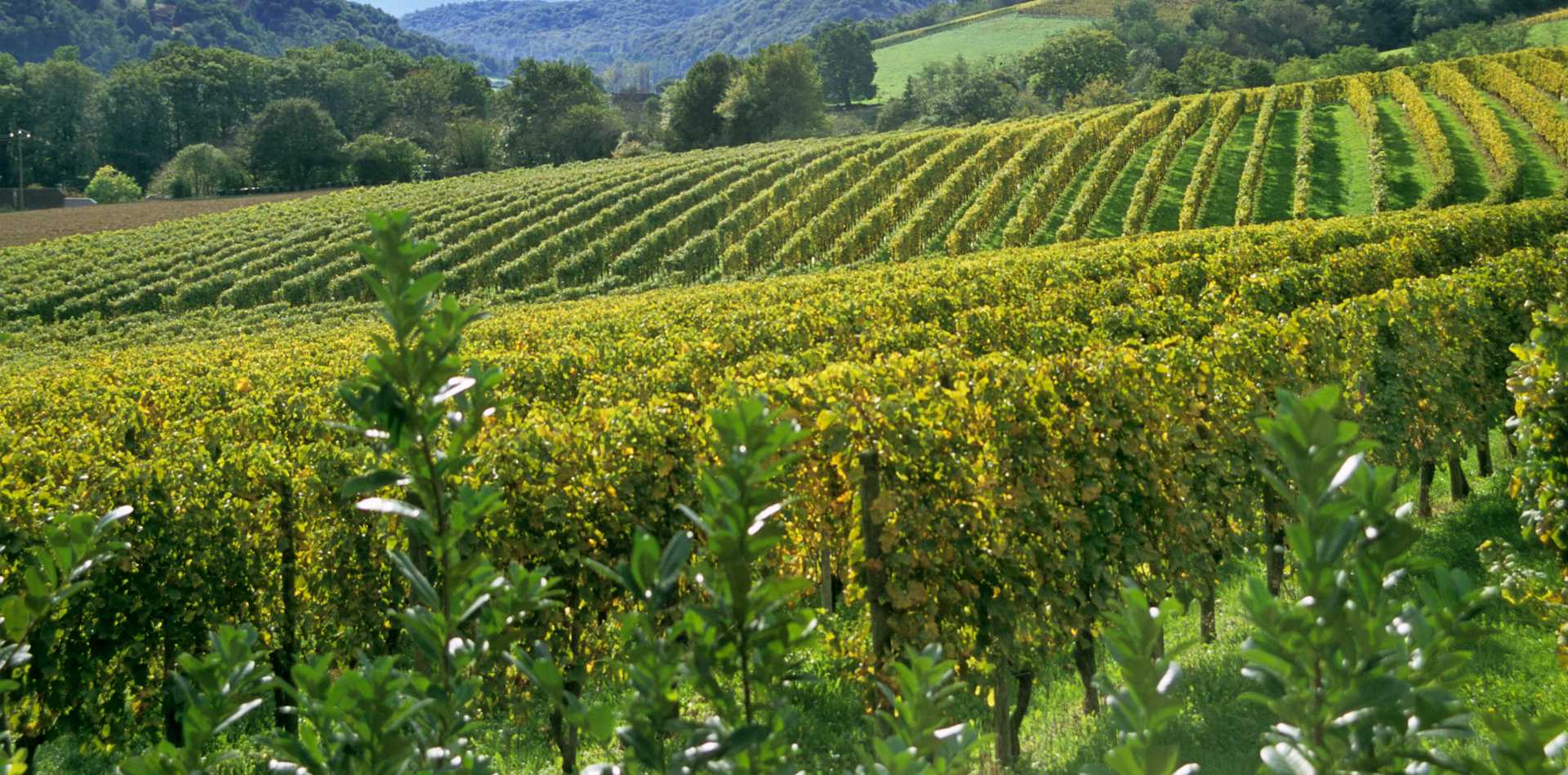

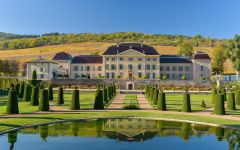
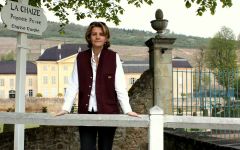

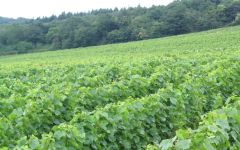
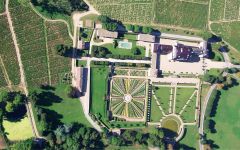
In 1674, François de La Chaize d’Aix, steward of Lyon, purchased the land known as La Douze at the foot of Mont Brouilly, in southern Beaujolais. He hired France’s most esteemed architect at the time François Mansard to build the château and assigned André Le Nôtre, famed-gardener to the king of France and head designer for the gardens of Versailles, to build the gardens around Château de La Chaize.
Château de La Chaize is among the oldest, most historic estates in Burgundy’s Beaujolais region. Cared for by the same family for nearly three and a half centuries, the estate has been passed on to new owners, the Gruy family, who are equally committed to managing the estate with the utmost care, while implementing an ambitious environmental plan. Among the many initiatives is the conversion of all vineyards to organic farming, the adoption of precision viticulture, reducing carbon their carbon footprint, and recycling every by-product from viti- and vinicultural activity, to achieve zero waste.
The estate covers nearly 300 ha of contiguous land, including 100 ha of vines in Brouilly. This ownership offers Château de La Chaize the autonomy to apply specific viticultural practices, which affect soil life, fauna, and flora diversity. Woodlands and meadows surround the estate, forming a natural barrier around the vines. These serve as “tools” for controlling the environment of the vineyards and contributes to a balanced, rich and thriving ecosystem.

Delightfully playful, but also capable of impressive gravitas, Gamay is responsible for juicy, berry-packed wines. From Beaujolais, Gamay generally has three classes: Beaujolais Nouveau, a decidedly young, fruit-driven wine, Beaujolais Villages and Cru Beaujolais. The Villages and Crus are highly ranked grape growing communes whose wines are capable of improving with age whereas Nouveau, released two months after harvest, is intended for immediate consumption. Somm Secret—The ten different Crus have their own distinct personalities—Fleurie is delicate and floral, Côte de Brouilly is concentrated and elegant and Morgon is structured and age-worthy.

The bucolic region often identified as the southern part of Burgundy, Beaujolais actually doesn’t have a whole lot in common with the rest of the region in terms of climate, soil types and grape varieties. Beaujolais achieves its own identity with variations on style of one grape, Gamay.
Gamay was actually grown throughout all of Burgundy until 1395 when the Duke of Burgundy banished it south, making room for Pinot Noir to inhabit all of the “superior” hillsides of Burgundy proper. This was good news for Gamay as it produces a much better wine in the granitic soils of Beaujolais, compared with the limestone escarpments of the Côte d’Or.
Four styles of Beaujolais wines exist. The simplest, and one that has regrettably given the region a subpar reputation, is Beaujolais Nouveau. This is the Beaujolais wine that is made using carbonic maceration (a quick fermentation that results in sweet aromas) and is released on the third Thursday of November in the same year as harvest. It's meant to drink young and is flirty, fruity and fun. The rest of Beaujolais is where the serious wines are found. Aside from the wines simply labelled, Beaujolais, there are the Beaujolais-Villages wines, which must come from the hilly northern part of the region, and offer reasonable values with some gems among them. The superior sections are the cru vineyards coming from ten distinct communes: St-Amour, Juliénas, Chénas, Moulin-à-Vent, Fleurie, Chiroubles, Morgon, Regnié, Brouilly, and Côte de Brouilly. Any cru Beajolais will have its commune name prominent on the label.
